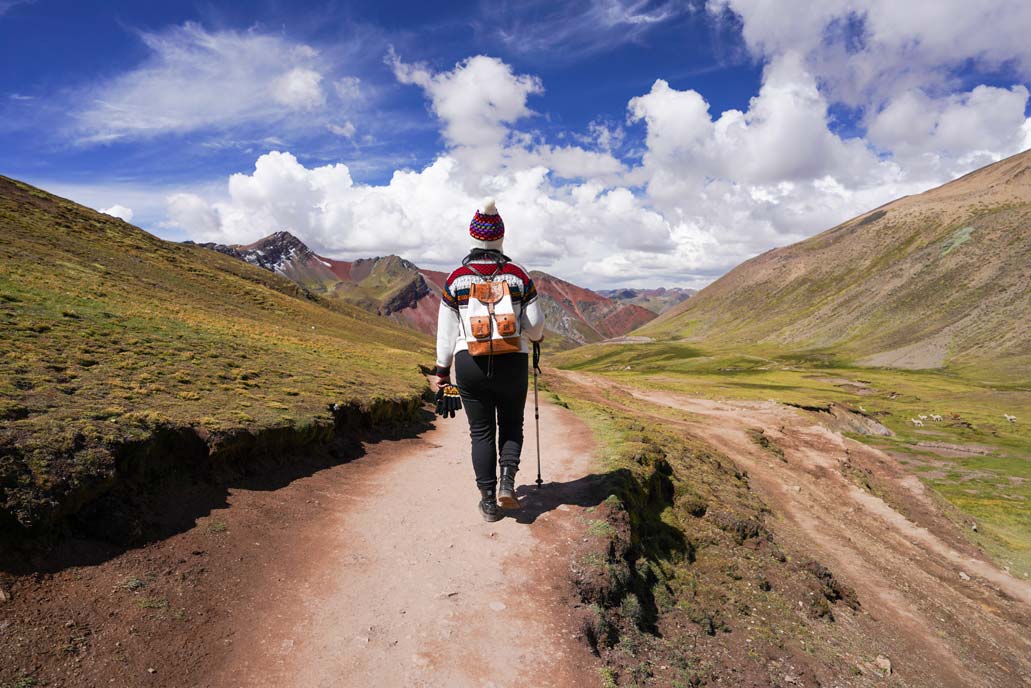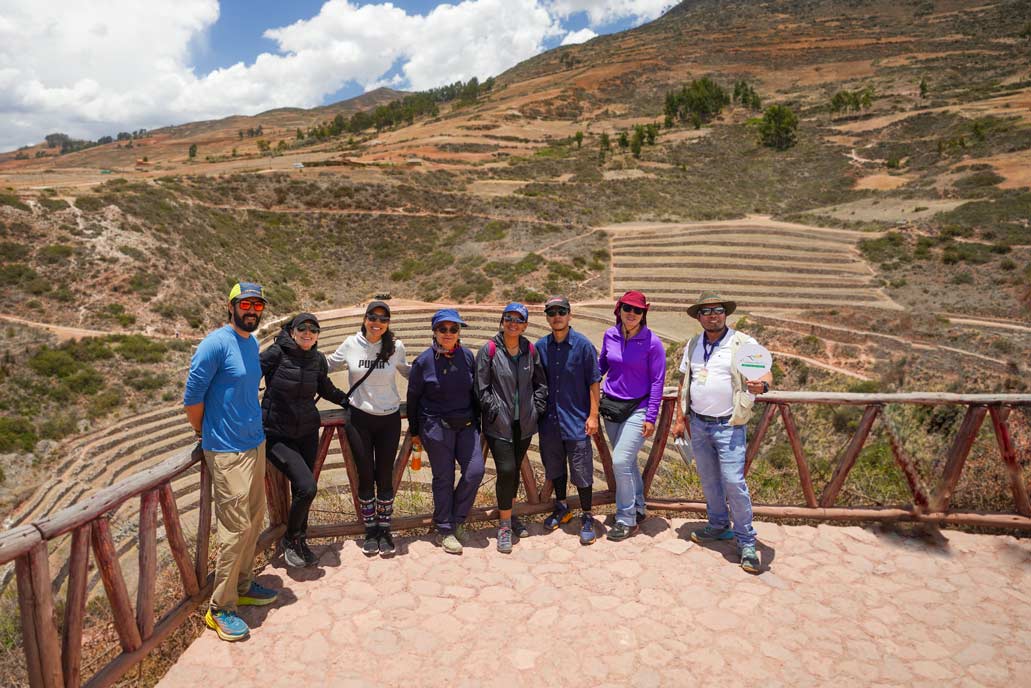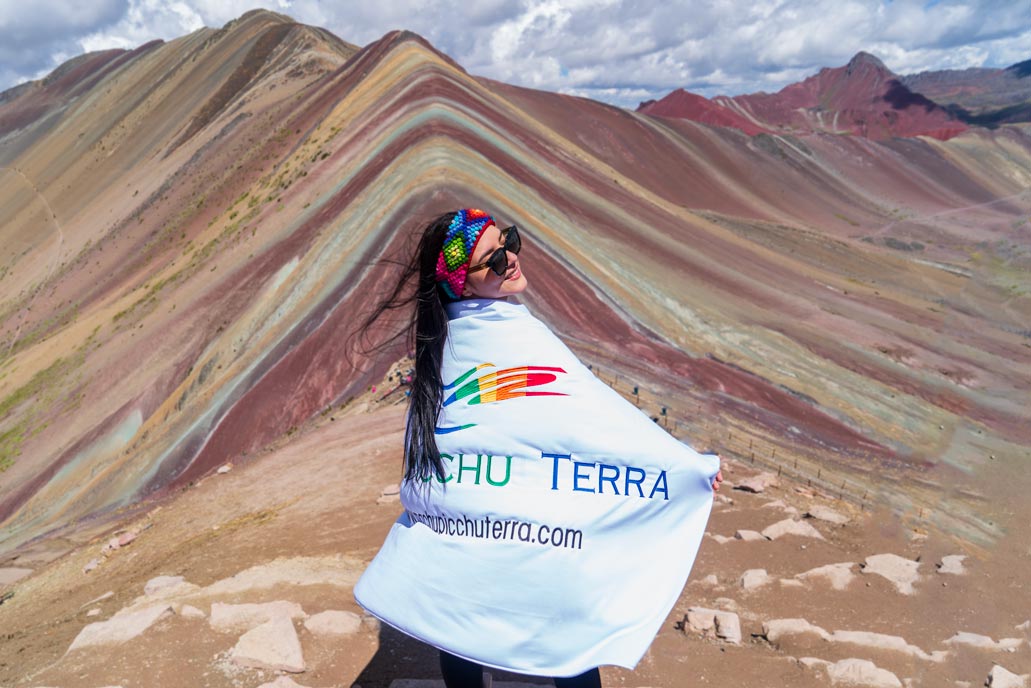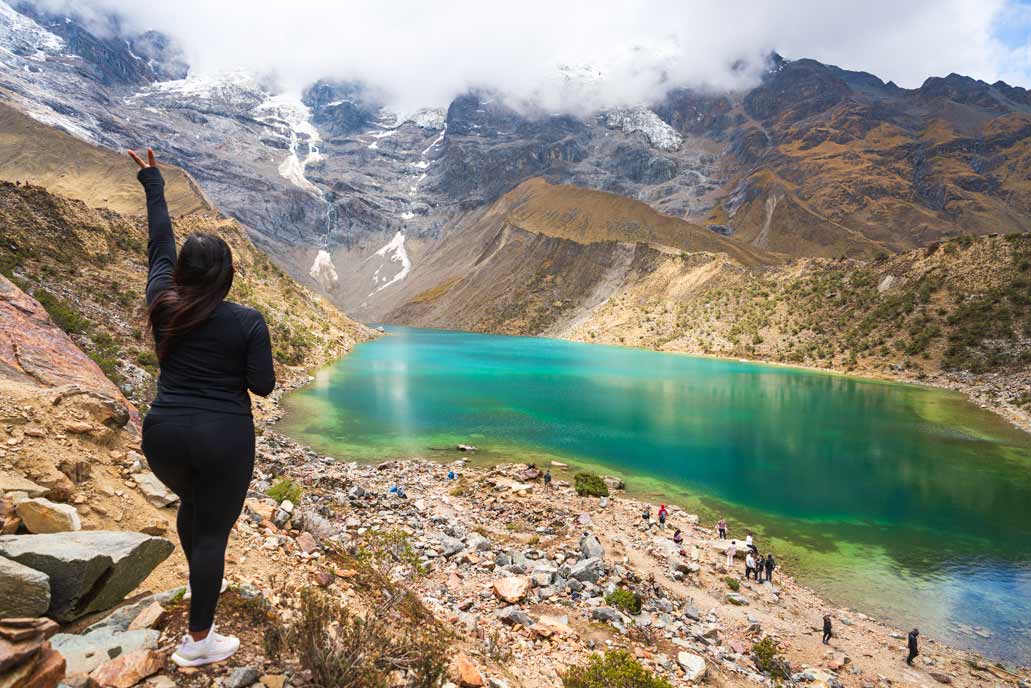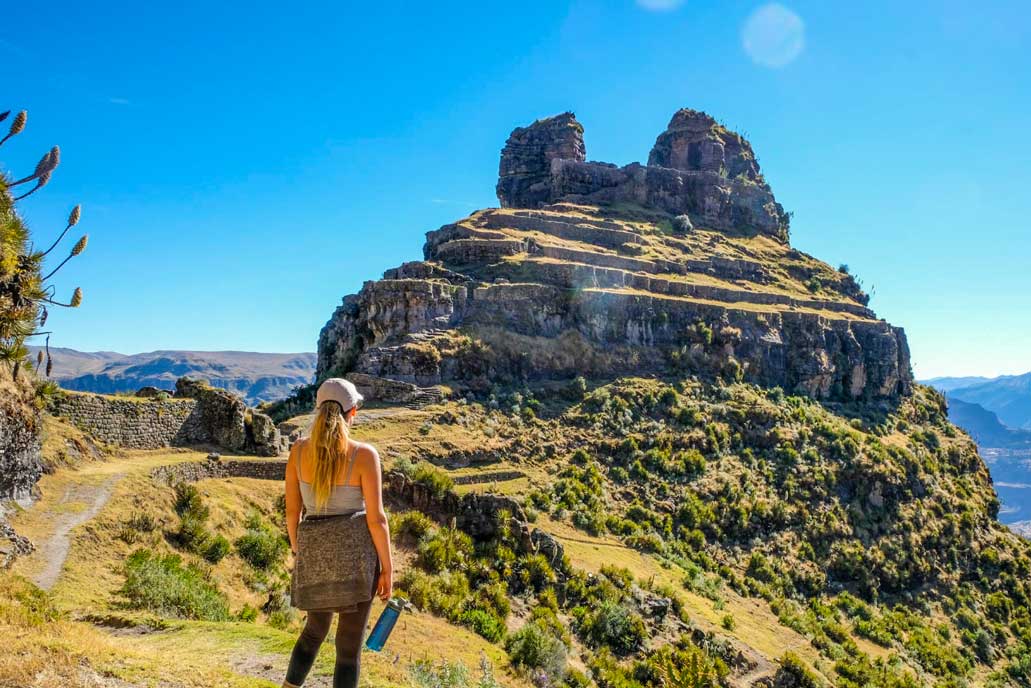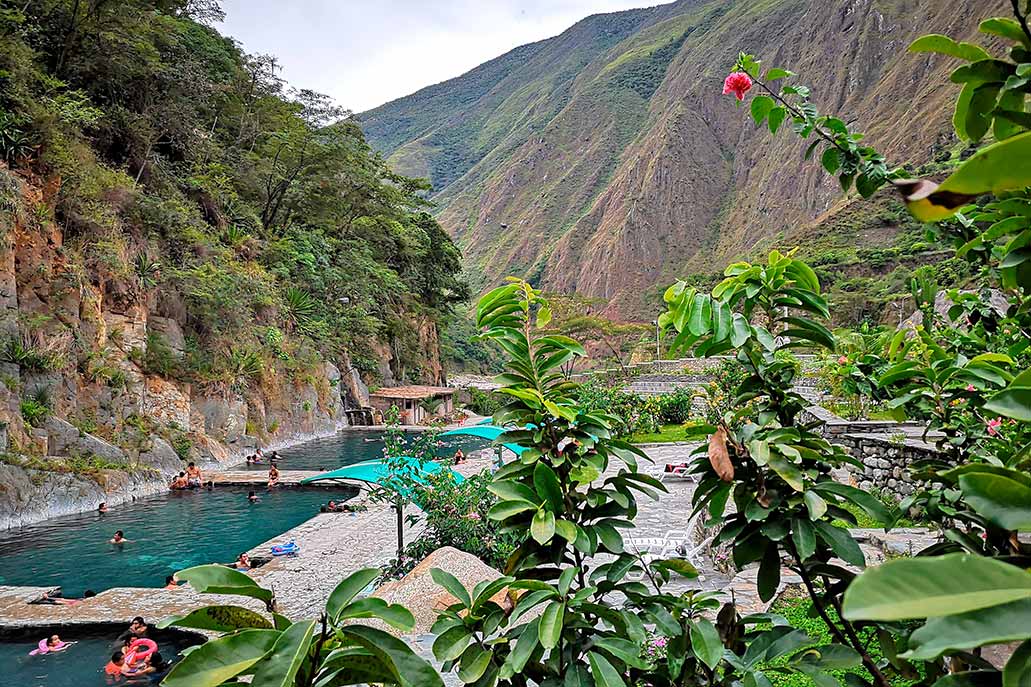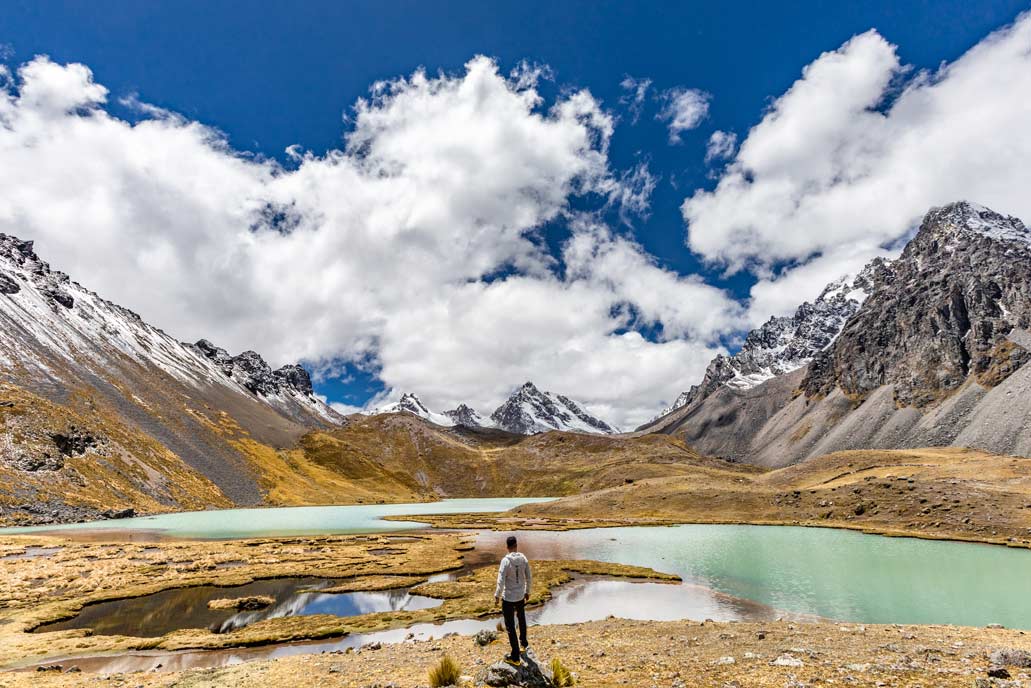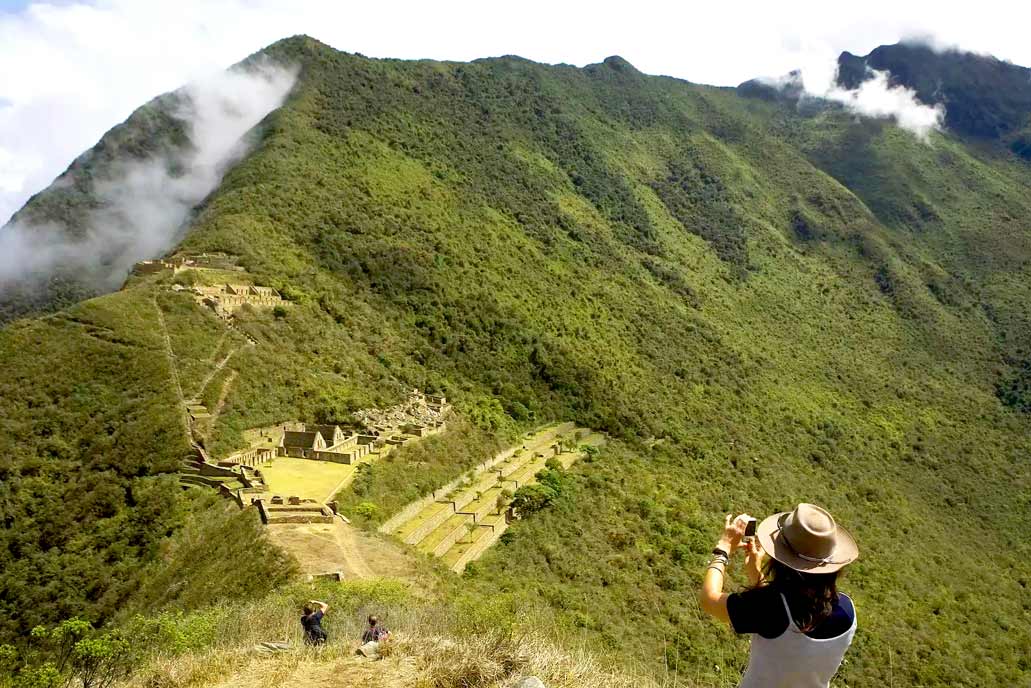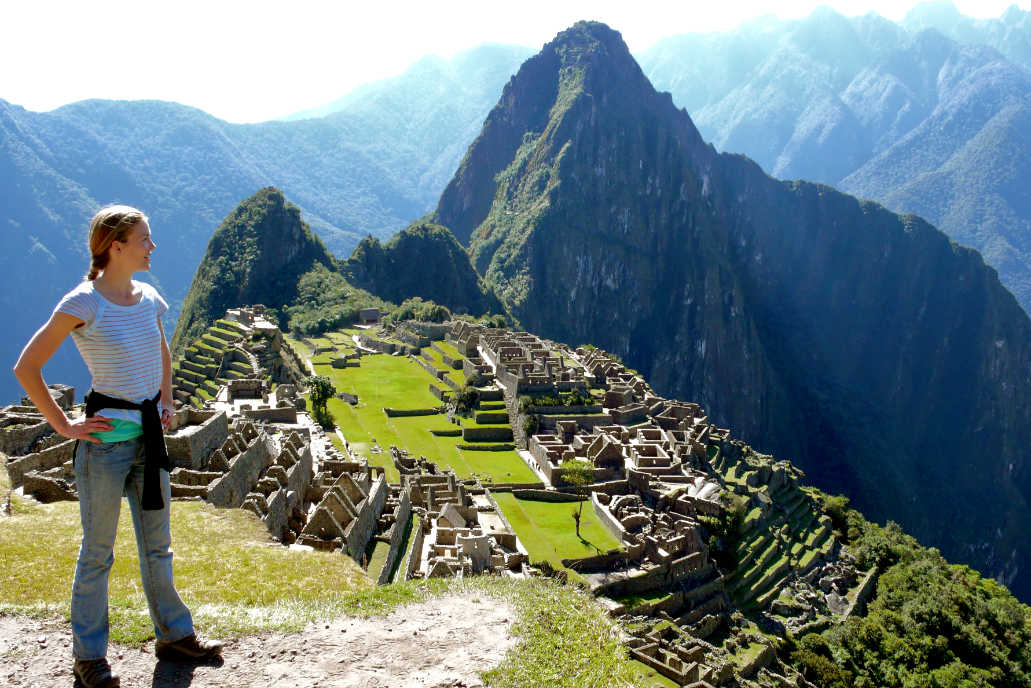Cusco’s tourist destinations ideal for adventurers
Cusco is the main tourist destination in Peru. It is located in the heart of the Andes Mountains in South America, at an average altitude of 3,399 meters above sea level. Its main attraction is the Inca city of Machu Picchu, recognized as one of the 7 Wonders of the Modern World. However, there are many other attractions in Cusco, many of which are ideal for adventure-loving visitors. Discover the tourist destinations in Cusco that are perfect for adventurers. Are you up for it?
Content
The most famous hiking routes in Cusco – The Andean geography of Cusco is perfect for hiking routes of several kilometers. Without a doubt, the most famous is the 4-day Inca Trail (39 kilometers). This historic hike follows the qhapac ñan, just as the Incas did until they reached Machu Picchu through the Intipunku or Puerta del Sol. In addition, the other most famous hiking route in Cusco is the 5-day Salkantay trek (70 kilometers). This hike includes a visit to formidable landscapes such as the Humantay lagoon, the Salkantay pass, the Cocalmayo thermal baths and, of course, Machu Picchu.
The Sacred Valley of the Incas
The Sacred Valley of the Incas is a geographical area of fertile lands, wonderful landscapes, Andean villages and ancient Inca cities. The archaeological sites of Pisac, Ollantaytambo, Chinchero and Moray stand out. In Moray there are tours that include adventure sports such as bicycle or ATV routes. In addition, in Chinchero there are kayak or ATV adventures in the Huaypo lagoon.
For lovers of hiking trails, you can take the walk from Chinchero to Urquillos passing by the Poc Poc waterfall. Also, a few kilometers from Urubamba there are hotels hanging on the side of a mountain like the Skylodge Aventure Suites. There, you can also go mountain climbing. And on the banks of the Vilcanota River you can go canoeing. In short, the Sacred Valley of the Incas has it all. It is a destination that you must visit on vacation in Peru.
- How to get there? – By private or public transport from the city of Cusco to Urubamba. The trip takes only 1 hour and 20 minutes.
- How much does the adventure cost? – The Maras and Moray half-day ATV tour costs $70 per tourist on average.
The 7 Colors Mountain
The Mountain of 7 Colors is an Andean foothill located in the Vilcanota mountain range, at 5,200 meters above sea level. Its name is due to the abundant minerals on its soil, which gives it the impression of a rainbow. Therefore, it is also called Rainbow Mountain, highlighting shades such as pink, fuchsia, lavender, red, green, brown and whitish. To get there, you must take an arduous 3-kilometer walk.
The trip from Cusco to the Rainbow Mountain takes 4 hours by land transport. From the Phulawasipata camp (4,900 meters above sea level) there is a famous hike that is difficult due to the high altitude. This experience is ideal for adventure lovers. Those who cannot complete it have the option of renting a horse that is taken by a local resident (cost of 70 soles on average). In addition, there is a tour to the Rainbow Mountain on an ATV.
- How to get there? – From the city of Cusco, it is a 4-hour drive to the Phulawasipata camp. Then, there is a 3-kilometer (2-hour) hike to the mountain.
- How much does the adventure cost? – The 1-day Rainbow Mountain tour costs $35 on average.
The Humantay lagoon
The Humantay lagoon is one of the most beautiful landscapes not only in Cusco but in Peru. It is located in the high mountains of the Salkantay snow-capped mountain, at an altitude of 4,200 meters above sea level. The lagoon is formed by the melting of the Humantay snow-capped mountain. It has turquoise waters ideal for taking a beautiful photo. However, to get there you must take a challenging 2-kilometer uphill walk along stone paths at an average altitude of 4,000 meters.
The trip from Cusco to Humantay begins with a 4-hour road trip to the Soraypampa campsite (3,800 meters above sea level). There, the hike begins along dirt trails. Most of the way is on steep paths, making the hike challenging. Optionally, visitors can request a horse from one of the locals (70 soles). In addition, there is a 2-day route that adds the hike to the Salkantay pass (with a campsite in Soraypampa).
- How to get there? – From the city of Cusco, it is a 4-hour drive to the Soraypampa camp. Then, there is a 2-kilometer (2-hour) walk to the lagoon.
- How much does the adventure cost? – The 1-day tour to Humantay lagoon costs $37.
The archaeological site of Waqrapukara
Waqrapukara was a pre-Inca fortress (Canchis culture) taken by the Incas and its architecture adapted through paths, stairways, squares, temples, enclosures and more. It is located in the province of Acos, in the Apurímac valley, at an altitude of 4,300 meters above sea level. Its name, translated from the Quechua language, means ‘horn-shaped fortress’. This is due to its imposing shape similar to two heads.
To visit Waqrapukara, you must take a road trip of 2 hours and 30 minutes on average, through the town of Sangarará. Then, you take a 15-kilometer walk along flat and ascending paths, which takes between 2 to 3 hours. This route is arduous but full of beautiful landscapes. In Waqrapukara, visitors will find imposing architecture where, in addition, you can practice payments to the earth or Pachamama.
- How to get there? – From the city of Cusco, it takes 2 hours and 30 minutes to travel to Sangarará. Then, you walk for 2 to 3 hours until you reach Waqrapukara.
- How much does the adventure cost? – The 1-day tour to the Waqrapukara archaeological site costs 55 dollars on average.
Cocalmayo in Santa Teresa
The Cocalmayo hot springs are considered the best in Cusco. They are located in the town of Santa Teresa, about 202 kilometers by road from the city of Cusco. Due to its location in the high jungle of the region, it has a pleasant climate surrounded by green mountains and the murmur of the Vilcanota River. The hot springs have temperatures from 38 to 44 degrees Celsius. They have a special charm due to their turquoise color and harmony with the landscape.
The trip to the Cocalmayo hot springs can be done with different hikes and adventure routes. Highlights include adventures such as the bicycle route from the Málaga pass to the town of Santa María (approximately 2-hour descent). In addition, you can go canoeing on the Vilcanota River. In the town of Santa Teresa, you can go ziplining and bird watching. All these sports, as well as a visit to the hot springs, can be done with the 4-day Inca Jungle tour to Machu Picchu.
- How to get there? – From the city of Cusco, it takes 5 hours to the town of Santa Teresa. Then, it takes 15 minutes by taxi to the hot springs.
- How much does the adventure cost? – The 4-day Inca Jungle tour to Machu Picchu, which includes a visit to the hot springs, as well as other sports, costs 420 dollars per visitor on average. Entrance to the hot springs costs 10 soles for foreigners.
The Ausangate
The Ausangate snow-capped mountain is the highest in Cusco with an altitude of 6,384 meters above sea level. It is part of the Vilcanota mountain range, the same one where the Mountain of 7 Colors, the Red Valley of Cusco, the colorful mountain of Palcoyo and other destinations are located. It is located about 84 kilometers from the city of Cusco. It was worshiped by the Incas for being an ‘Apu’ or important mountain god. Today, the route to get there is one of the most challenging adventures in Cusco.
The Ausagante trek of 4 or more days is the tour that allows you to visit the main tourist attractions of the foothills of Ausangate. It includes visits to tourist sites such as the circuit of seven lagoons, the thermal baths of the town of Pacchanta and Vinicunca (Mountain of 7 Colors). Another adventure of great cultural value is the walk or pilgrimage in homage to the Lord of Qoyllur Riti. In addition, there are professional expeditions for those seeking to reach one of the peaks of the imposing and difficult snow-capped mountain.
- How to get there? – From the city of Cusco, travel by road 126 kilometers to the town of Pacchanta. There begins the walk to the surroundings and tourist attractions of the Ausangate snow-capped mountain.
- How much does the adventure cost? – The 4-day Ausangate trek tour costs $550 per visitor on average.
Choquequirao
Choquequirao is called ‘the sacred sister of Machu Picchu’ because it has an architectural structure very similar to the famous Inca citadel. It is located in the valley of the Apurímac River in the province of La Convención, in a geography of difficult access, at 3,103 meters above sea level. To get there there are no cars or trains, it can only be reached through an arduous walk of 32 kilometers on average. Once there, the visitor will find himself almost alone with an immense Inca city.
Choquequirao has paths, steps, squares, temples, neighborhoods, smaller enclosures, royal enclosures, huge agricultural terraces and even an Inca cemetery. Choquequirao is much larger than Machu Picchu, even though only 30% of the archaeological site has been excavated. Due to the high temperatures and heavy roads, it is a challenging hiking route. There is even an 8- to 9-day hiking route that connects Choquequirao with Machu Picchu.
- How to get there? – From the city of Cusco you must travel by road 164 kilometers (3 hours 40 minutes) to the town of Cachora. In this town begins the 2-day hike to Choquequirao.
- How much does the adventure cost? – The Choquequirao trek 4-day tour costs 690 dollars per visitor on average.
Machu Picchu
Machu Picchu is one of the best tourist attractions on the planet. In 2007 it was declared one of the Wonders of the Modern World. It receives around 1.5 million visitors every year. It is famous for its splendid landscape, its Inca stone buildings and also for the hiking routes that can be done there. Highlights include hikes to the mountains Huayna Picchu, Machu Picchu, Huchuy Picchu, as well as the routes to Intipunku (Sun Gate), the Inca Bridge or the Great Cavern (also known as the Temple of the Moon).
In addition to the hiking trails in Machu Picchu, there are multi-day treks such as the 4-day Inca Trail or the 5-day Salkantay trek. Another interesting option is to take the Inca Jungle tour, which includes trekking, cycling, canoeing, ziplining and a relaxing afternoon in the Cocalmayo hot springs until arriving at Machu Picchu. In the town of Aguas Calientes, you can visit the Mandor waterfalls or the challenging hike to Putucusi Mountain. In short, Machu Picchu is an excellent option for visitors looking for adventure.
- How to get there? – From the city of Cusco, it takes 4 hours by bus and train, passing through the towns of Ollantaytambo and Aguas Calientes.
- How much does the adventure cost? – The 4-day Machu Picchu Inca Trail tour costs $705 per visitor on average. The 5-day Salkantay trek tour costs $460 per visitor on average.
By Machupicchu Terra – Last updated, November 22, 2024
